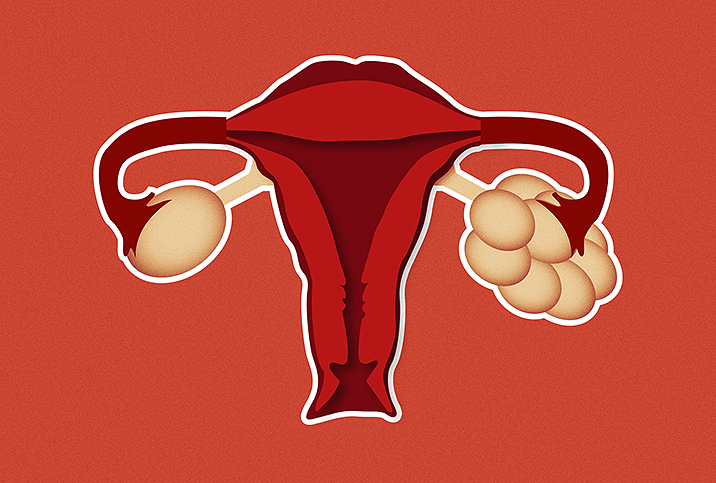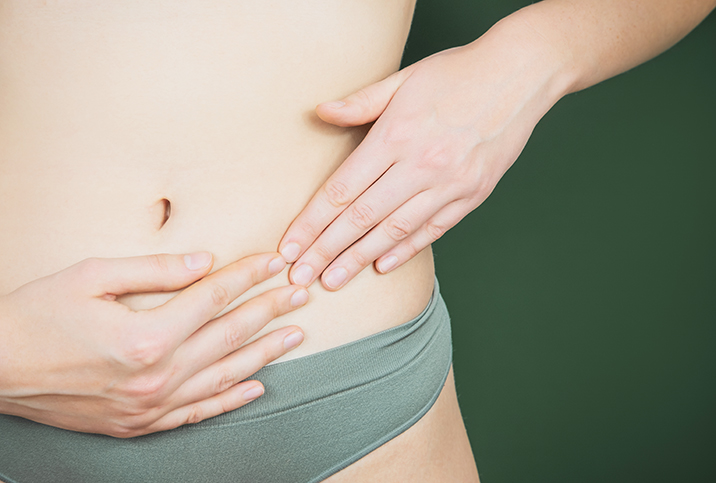The Effect of PCOS on Your Mental Health

Polycystic ovary syndrome (PCOS) is a multidimensional and lifelong reproductive endocrine disorder that the Centers for Disease Control and Prevention (CDC) estimates affects 6 to 12 percent (around 5 million) of women of childbearing age in the United States.
Women who have PCOS suffer from a broad range of symptoms that negatively impact their quality of life, such as obesity, weight gain, infertility, amenorrhea, excess body hair (hirsutism) and mental health disorders.
A 2016 meta-analytic study indicates that women with polycystic ovary syndrome have a higher prevalence of moderate to severe depressive and anxiety symptoms than women without PCOS. Recent scientific studies shed light on several factors that could explain the link between PCOS and anxiety and depression.
The correlation between PCOS and mental health
According to a 2018 study on PCOS and psychiatric disorders, women diagnosed with PCOS were nearly three times more likely to suffer from depression and anxiety, and nearly twice as likely to be diagnosed with bipolar disorder and obsessive-compulsive disorder (OCD), than those without PCOS.
Other studies corroborate this finding across cultures. Beyond the Western context, the link between polycystic ovary syndrome and mental health disorders also applies to women with this condition in India, Iran, Hong Kong, and Spain. Findings from these studies all point to a significant correlation between PCOS and various psychiatric and personality disorders.
Given the complex etiology of polycystic ovary syndrome, scientists have difficulty pinpointing what exactly predisposes women with PCOS to a heightened risk for depression and anxiety. However, available evidence suggests that depression arising from PCOS can be caused by physiological and psychological factors or a combination of both.
Physiological factors
Most studies exploring why PCOS and mental health disorders often go together have considered several physiological factors, such as hormonal changes and chemicals in the brain.
Insulin resistance
Around 65 to 70 percent of women with PCOS have insulin resistance. When someone is insulin-resistant, the overproduction of glucose in their blood makes it difficult for their cells to absorb and expend glucose for energy, leading to elevated blood sugar levels.
Major depressive disorder (MDD) has been linked to insulin resistance in a study of people with type 2 diabetes. Having defective brain insulin signaling compromises the transport of mood-regulating hormones like dopamine across the blood-brain barrier. This impairment has been found to cause anxiety and depressive symptoms.
Hormonal differences
Elevated androgen levels in women with polycystic ovary syndrome have also been linked to anxiety and depression. However, the link is not definitive as studies have had mixed results. For example, in one study published in Psychoneuroendocrinology, lower and not higher androgen levels were responsible for depression and anxiety among women with PCOS.
Psychological factors
Polycystic ovary syndrome generates symptoms that can increase the risk of anxiety and depression. Stigmatizing symptoms that strike at the core of body image and femininity concepts are incredibly frustrating for women with PCOS.
A qualitative study found that women likened PCOS to a "thief of womanhood" for depriving women of their femininity because the condition causes infertility, excess body hair, acne and weight gain.
In addition, emotional frustration and distress as a result of these symptoms place women at risk for anxiety and depression, whatever their age, weight or sociodemographic characteristics, according to a recent study.
Help for women with PCOS
Women diagnosed with polycystic ovary syndrome may experience a cycle of depression as a result of their condition. Therefore, it is important to consult a healthcare provider for the best possible treatment for PCOS. Medications and natural remedies are available to ease PCOS symptoms associated with mental health burdens.

















